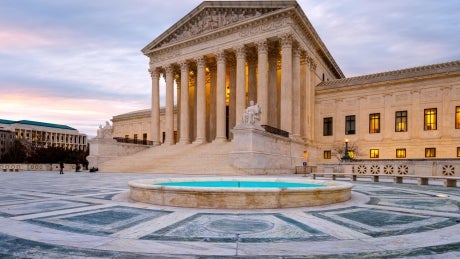California Land Use & Development Law Report

California Land Use & Development Law Report
California Land Use & Development Law Report offers insights into legal issues relating to development and use of land and federal, state and local permitting and approval processes.

Supreme Court Rules Legislatively Adopted Exactions Not Exempt From Nollan/Dolan Scrutiny

Subway Construction Work Did Not Inversely Condemn Hotel Property
A hotel owner brought a lawsuit against a county transportation authority and a general contractor for nuisance and inverse condemnation alleging that the construction of an underground subway line disrupted the operation of the hotel and caused various problems, such as noise and dust, which interfered with the use and enjoyment of the property and resulted in monetary damages.
Traffic Mitigation Fee Did Not Violate the Unconstitutional Conditions Doctrine Under Nolan and Dolan
A traffic mitigation fee required for construction of a single-family home did not amount to an "unconstitutional condition" in violation of the takings clause of the Fifth Amendment, and the County complied with the Mitigation Fee Act in assessing the fee. Sheetz v. County of El Dorado, No. C093682 (4th Dist., Oct 19, 2022).

Pursuit of State Administrative Remedies Not Necessary to Obtain Final Decision for Federal Takings Claim
The U.S. Supreme Court held that property owners do not have to comply with state administrative processes to obtain a final decision before bringing a takings claim under 42 U.S.C. § 1983 when the government's position is clear. Pakdel v.

Requirement That Proposed Development Mitigate Cumulative Traffic Impacts Violated Nollan/Dolan Standard
An initiative measure that required new development to mitigate not only its individual traffic impacts but also cumulative impacts of other projects on traffic levels of service violated the rough-proportionality standard of Nollan and Dolan and was therefore unconstitutional.

Plaintiff Not Required to Submit Multiple Development Applications Before Bringing Takings Claim
Multiple applications for a development project are not required where the first permit denial makes clear that no development of the property would be allowed under any circumstance. Felkay v. City of Santa Barbara, No.

Condemnee Need Not Entirely Vacate Premises to Recover Damages After Condemnation is Abandoned
Complete physical dispossession of a property is not a prerequisite to an award of damages after a condemnation proceeding is abandoned—moving from the property in reliance on the order granting the agency possession is sufficient. San Joaquin Regional Transit District v. Superior Court, No. C084755 (3rd Dist., Dec.

Condemned Property Not Used Within Ten Years Must Be Offered for Sale to Original Owner
The City of Los Angeles was required to offer to sell condemned property back to its original owner because the property had not been used and the City Council did not adopt a resolution reauthorizing the public use until 19 days past the 10-year statutory deadline. Rutgard v. City of Los Angeles, No. B297655 (2nd Dist., July 30, 2020).

Judgment Against Prior Owners Fixed Tidelands Boundaries, Barring Plaintiffs’ Quiet Title and Inverse Condemnation Claims.
The court of appeal held that plaintiffs' inverse condemnation and damages claims based on dredging in the bay adjacent to their properties was barred under the doctrine of res judicata based on a 1931 judgment conclusively establishing that the property alleged to have been taken or damaged was not owned by plaintiffs.

Reclassification of Land From Urban to Agricultural Did Not Result in Unconstitutional Regulatory Taking
The State of Hawaii Land Use Commission's reversion of 1,060 acres from a conditional urban land use classification to the prior agricultural use classification was not an unconstitutional taking because the landowner could still reap economic benefits from the property, the reclassification did not substantially affect the overall valuation or any potential sales, and the landowner should have